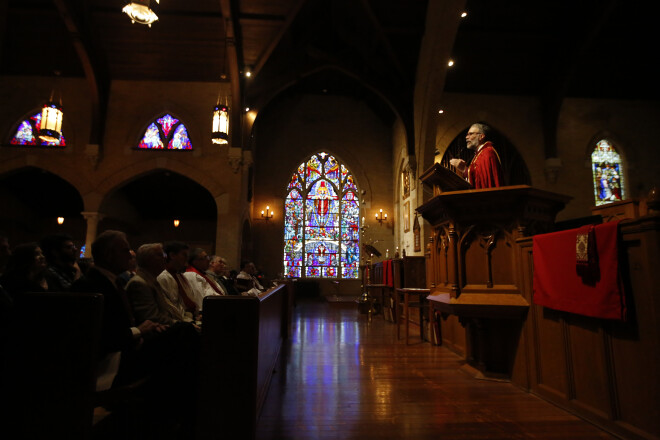On Mottos, Part 1

The question whether we should keep our diocesan motto, “we are Resurrection people” came up recently. My first reaction was “of course”- who wants to suggest we aren’t? My second was a query. Why that sentence and not another: “we are atonement people,” or “we are justification people,” or “we are Gospel people,” or “we are mission people,” etc. Those are true as well.
This led to a third thought, that mottos are judgments that, at this time, in this situation, this is what needs most to be heard. I thought of other sentences we might have picked (and plan to list them in my next blog), each also speaking into our moment as traditional Christians in the Anglican tradition in this post-modern circumstance.
The marketers know their business, as I have been reminded by sitting in on sessions with one of the pros recently. They would say that mottos should communicate immediately. If you have to explain you’ve lost: “just do it” with the swoosh doesn’t need a commentary. By contrast Biblical symbols are amazingly fecund and of the making of commentaries on them there is no end! That is a sign of their truth. But that density of meaning also implies that they can be misunderstood, as that teller of parables Jesus of Nazareth was.
My fourth reaction was that the folks who decided on “resurrection” did well, as this symbol is particularly suited to being a summary of the whole Biblical message. How economically that one sentence can entail a thousand pages of sacred text is remarkable! But a great deal more must be said.
Finally, and fifthly, we should retain our motto because we are Anglicans in the Prayer Book tradition. Cranmer’s genius was to keep as much as possible, changing only what the truthful communication of the Gospel required. His was an ethos of conservation. The new regime going and changing everything around willfully was what was wrong with that era of our history, and ours too!
Peace,
+GRS



